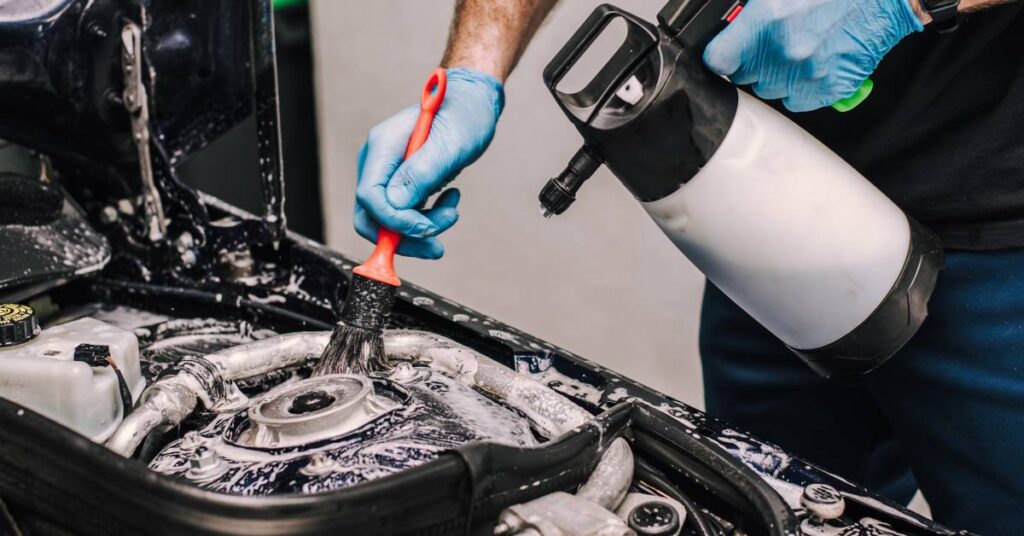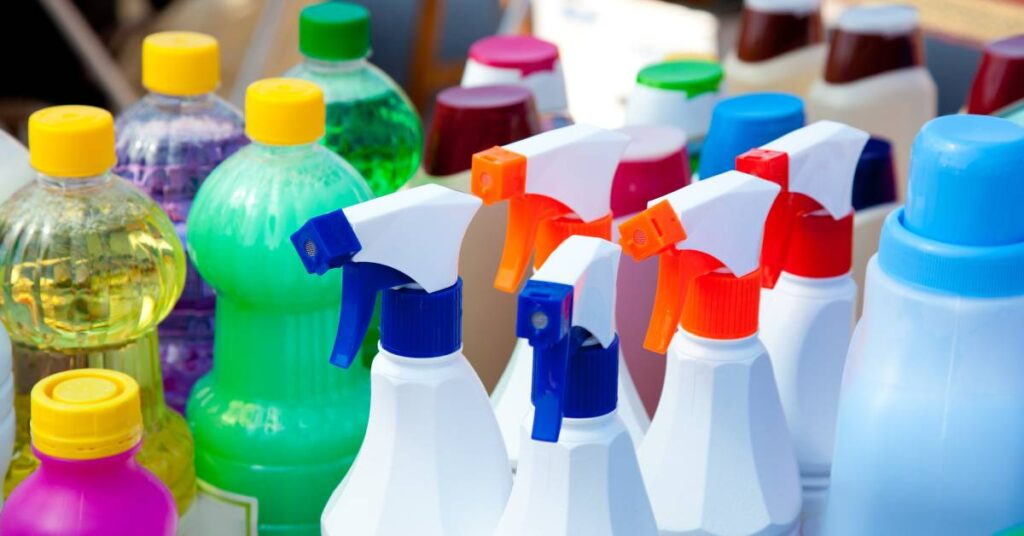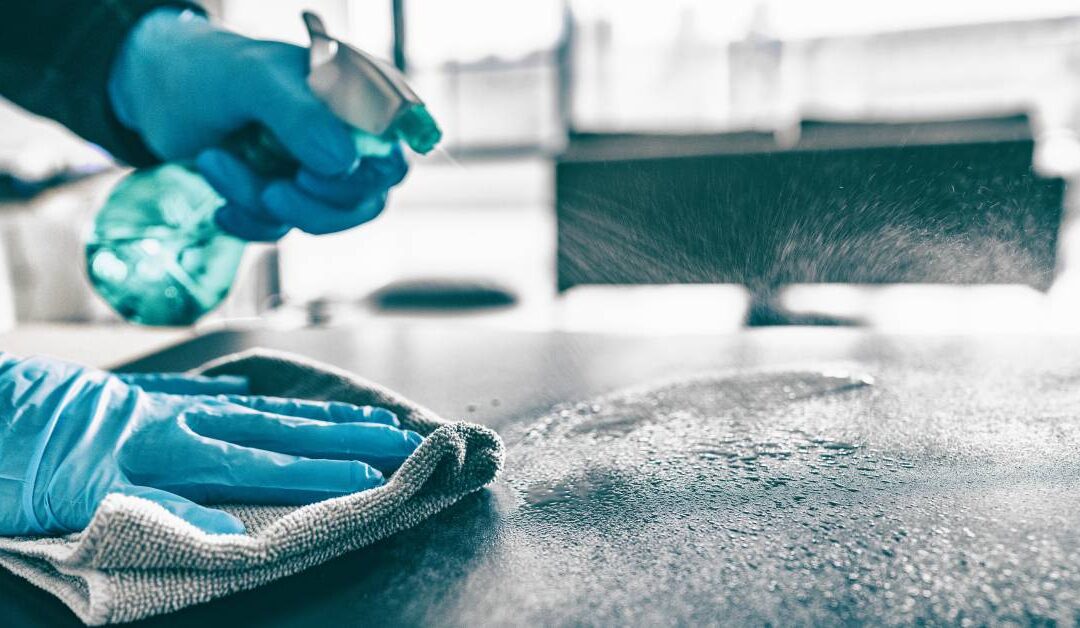Cleaning products are used to maintain cleanliness and hygiene across various settings, from homes to industrial spaces. Among the many options available, water-based and solvent-based cleaners stand out due to their unique properties and applications. Understanding their composition, effectiveness, and other characteristics can help you choose the appropriate cleaner for your specific needs. To do so, consider this comparison of water-based versus solvent-based cleaners.
Composition and Properties of Water-Based Cleaners
As the name suggests, water-based cleaners primarily feature water as their central ingredient. The water content dilutes the other ingredients, reducing harshness without sacrificing cleaning power. Surfactants within water-based cleaners work to lower surface tension, effectively breaking down dirt and grease. These molecules surround particles of grime, lifting them from surfaces such as glass, ceramics, and countertops.
The chemical makeup of water-based cleaners includes a neutral to slightly alkaline pH level. This balance protects surfaces from potential damage during cleaning processes. The lack of aggressive chemicals also means these cleaners do not etch or degrade materials, making them ideal for delicate surfaces.
Water-based options cater to users seeking effective cleaning solutions that align with eco-conscious practices. They provide a balance of powerful cleaning action with minimal environmental impact.
Composition and Properties of Solvent-Based Cleaners
Solvent-based cleaners dissolve contaminants through chemical reactions. These products rely on various solvents, such as acetone, alcohol, or hydrocarbons, which break down stubborn stains and deposits. The solvents have a high evaporation rate, which aids in rapid drying post-application. This characteristic helps when cleaning greasy or oily substances in industrial settings where quick turnaround times are essential.
Due to their volatile nature, solvent-based cleaners require careful handling. Users must adhere to certain safety precautions, including ensuring proper ventilation and wearing protective gear, to mitigate the risks associated with flammability and inhalation of fumes.
Effectiveness on Different Surfaces
When comparing water-based and solvent-based cleaners, it’s important to assess each option’s effectiveness on different surfaces. Water-based cleaners work well on delicate surfaces that require a softer touch. Whether tackling daily grime on wood furniture or maintaining the clarity of plastic items, these cleaners manage to clean effectively without causing harm. Their neutral pH levels and lack of harsh chemicals make them ideal for preserving the materials, ensuring their longevity and aesthetic appeal.
Solvent-based cleaners are great for removing tough residues, such as grease and oils, from non-porous surfaces like metals. In industrial settings, these cleaners ensure machinery operates smoothly by eliminating buildup that could hinder performance.
Practical Applications
Water-based cleaners dominate household cleaning tasks, efficiently maintaining hygiene in kitchens, bathrooms, and living areas. Their gentle formulas suit regularly touched surfaces, reducing concerns about harsh residues. For instance, a water-based multipurpose cleaner effectively cleans kitchen counters and bathroom tiles, providing a reliable solution for homeowners seeking simplicity and safety.
Solvent-based cleaners excel in industrial and automotive environments, where robust cleaning power proves necessary. In automotive repair shops, these cleaners dissolve grease from engine components, maintaining machinery performance. But beyond general use, solvent-based cleaners support specialized industries. In aerospace and electronics, these cleaners prepare surfaces and components for various tasks, ensuring optimal performance. The precision and strength of these cleaners make them indispensable in places where water-based alternatives may fall short.

Environmental Impact
As mentioned, water-based cleaners can contain biodegradable ingredients that minimize ecological disruption. Many water-based products even carry eco-friendly certifications, which enhances their appeal among environmentally conscious shoppers. These certifications assure users that their cleaning choices support broader environmental sustainability goals.
Challenges With Solvent-Based Cleaners
Solvent-based cleaners may pose environmental challenges, primarily due to volatile organic compound (VOC) emissions. These emissions contribute to air pollution, which means use of these cleaners requires careful consideration for usage and disposal practices.
Balancing Efficacy and Environmental Responsibility
Selecting the ideal cleaning product involves balancing efficacy with environmental responsibility. While solvent-based options provide unmatched cleaning power, water-based alternatives offer a more sustainable choice for those prioritizing ecological impact. Understanding these dynamics aids consumers in making informed decisions that satisfy both cleaning needs and environmental values.
Unique Capabilities of Solvent-Based Cleaners
Solvent-based cleaners can penetrate complex machinery, reaching intricate parts where dirt and grime accumulate. Their chemical composition allows them to dissolve and dislodge stubborn residues from internal components, ensuring smooth operation without the need to dismantle the machinery for cleaning.
In addition to machinery maintenance, solvent-based cleaners excel in specialized tasks like graffiti removal. Their powerful formulas break down tough pigments and adhesives found in spray paints and markers, allowing users to restore the affected surfaces to their original state.
Moreover, industries can invest in solvent recycler equipment to reclaim and reuse solvents, enhancing their economic and environmental sustainability. For example, companies can use 30-gallon solvent recyclers to filter and purify used chemicals, reducing the need for constant replenishment while decreasing waste.
Unique Capabilities of Water-Based Cleaners
Water-based cleaners are versatile, especially when you use them with other cleaning agents. This adaptability allows users to tailor their solutions for specific tasks, such as combining vinegar or baking soda with the cleaner for tougher stains or adding essential oils for fragrance and additional cleaning power.
Moreover, water-based cleaners are ideal for users who are sensitive to allergens, offering a gentle solution that minimizes irritation. Their hypoallergenic formulas suit households with those who deal with various allergies, providing a clean space without triggering adverse reactions. Schools, healthcare facilities, and homes benefit from the use of these cleaners, ensuring cleanliness without compromising the comfort and well-being of individuals.
Safety Considerations
Water-based cleaners offer a safer option for everyday cleaning tasks, minimizing potential health risks. Their formulation typically excludes harsh chemicals, reducing the incidence of skin irritation. Users can handle these cleaners with minimal protective gear, though maintaining adequate ventilation remains essential to avoid inhalation of any residual fumes.
In contrast, solvent-based cleaners require a higher level of precaution due to their chemical composition and flammability risks. Using protective equipment like gloves and masks prevents direct contact with skin and inhalation of toxic fumes. Additionally, proper storage away from heat sources ensures safety and prevents the chances of accidental fires.

Can You Use Both?
In many settings, combining water-based and solvent-based cleaners enhances cleaning effectiveness. Homeowners can use water-based cleaners for everyday tasks like wiping countertops and cleaning floors, providing gentle care for frequently touched surfaces. Meanwhile, solvent-based cleaners offer the necessary strength for tackling stubborn stains or grease buildup. This means that a homeowner might address tough grease stains on a kitchen stove with a solvent-based cleaner while maintaining general kitchen cleanliness with water-based solutions.
In industrial environments, a similar approach adds value. Facilities can use water-based cleaners for routine maintenance, keeping surfaces clean and safe without using harsh chemicals. For more demanding tasks, such as degreasing machinery or removing industrial-grade residues, solvent-based cleaners deliver the required power. This strategy allows businesses to manage daily upkeep efficiently while addressing periodic needs for intensive cleaning.

